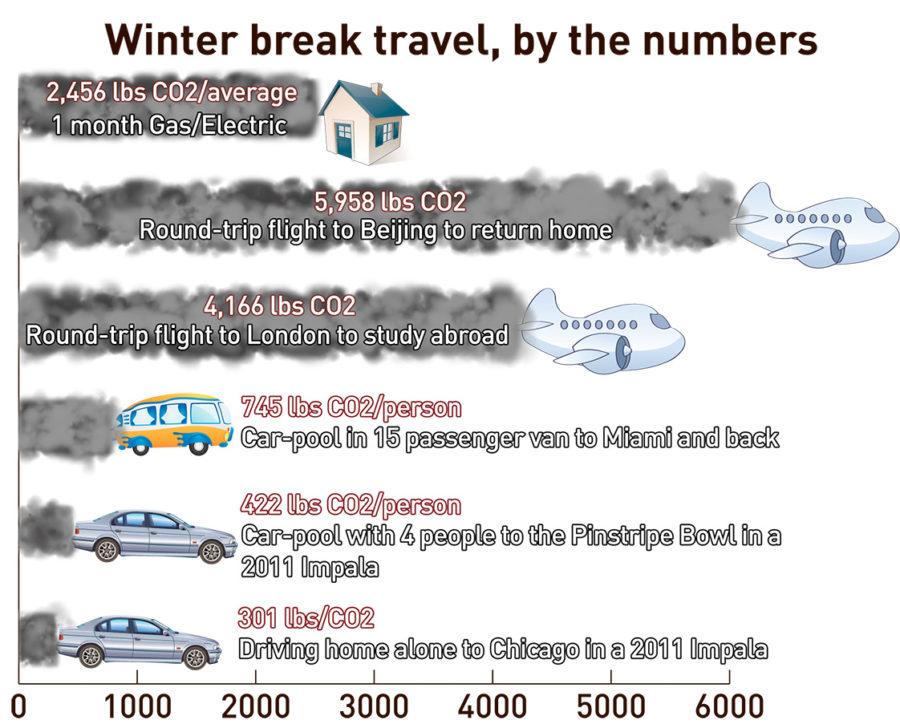Vacationing comes at environmental cost
Graphic: David Derong/Iowa State Daily
Winter break travel, by the numbers
December 12, 2011
The semester is winding down, holiday break is here, Iowa State is playing in the Pinstripe Bowl, and students are going to be vacationing, heading home or studying abroad all across the globe. While the costs of gasoline and airfare are sure to run high, checking accounts will not be the only thing taking a hit this holiday season.
Traveling during the holidays carries a high environmental price tag. According to Terrapass.com, the flight for an international student to fly back into Beijing carries a carbon footprint of 5,958 lbs. of CO2. This is over double the amount that it takes to provide heating and electric to the average home in Ames for one full month.
Merry Rankin, director of sustainability at Iowa State, provided several tips for students to help keep their environmental impact down over the holidays.
“Carpooling to places and events is a great sustainable alternative,” Rankin said. “Choose a more low-impact vehicle if you have a choice, and make sure the vehicle you travel with is ready. … A well-maintained vehicle — don’t forget to check your tires — runs more efficiently, no matter what make and model it is.”
Liwei Liu, senior in accounting, plans to return home to China over the break. Liu discussed the prohibitive cost of traveling for international students but said that it was ultimately worth it for students who have little time or opportunity to relax while in Ames.
Companies like TerraPass sell carbon offsets for those that are particularly worried about their footprint. One example of a purchasable offset is an investment into a plant which converts cow manure into electricity.
Rankin advises that despite the high impact of traveling, the value to sustainability might be worthwhile.
“Travel is important for social sustainability. When we have the opportunity to make connections and experience new places and things, it increases awareness and understandings and helps communities and cultures strengthen and grow. It also assists the economic sustainability of the places that we visit,” she said.







